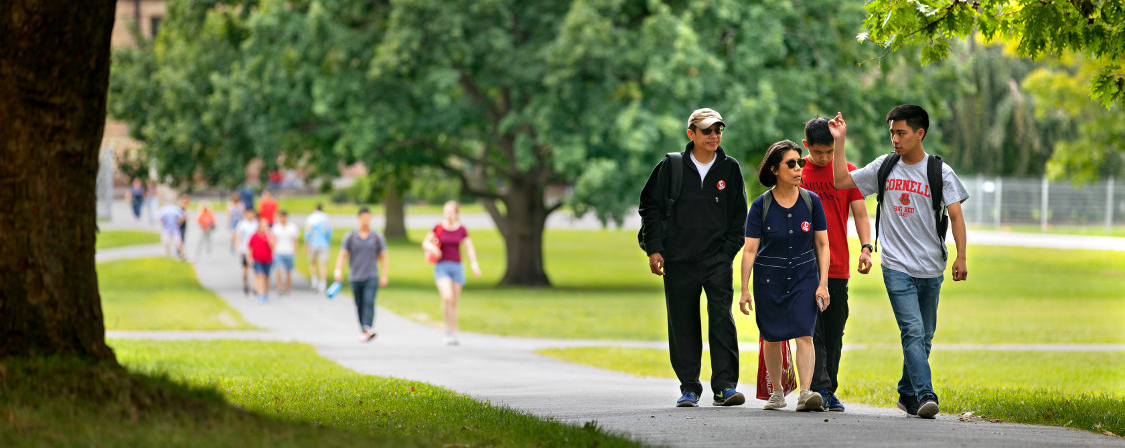Parents & Families

So much about a student's college years (especially the initial transition!) may feel daunting or strange to their parents and family. Yet the experience of students at Cornell is similar to that of many college students throughout the nation. There are bound to be challenges, set-backs, and times of self-doubt along the way. Yet the university experience allows students the opportunity to learn balance, compromise, and harmony in new situations; and experience shows us most Cornell students rise to the occasion and quickly adapt.
Most undergraduates (especially first-year students), and even some graduate students are still learning to become independent, having previously-relied on family and close friends for support and care. Learning to broaden one's resources to include non-family members is an important step toward independence.
- Importance of self-care: When academic demands increase, some students may be tempted to forego sleep, healthy eating, and other forms of self-care. Remind your student that mental health and well-being are important foundations for academic success. Cornell Health suggests 10 ways for students to support their mental health, and lists ways to seek support if they need it.
- Supporting your student in difficult times: If you feel your student is going through a tough time and could benefit from mental health support during their time at Cornell, encourage them to reach out for assistance. Many students benefit from talking with a peer, coach, or a trusted staff member in their academic department. Those living in university housing can connect with residential staff for support. And the Learning Strategies Center can help with study groups, tutors, or individual time management plans. For those needing professional mental health services, Cornell Health offers a range of options including drop-in consultation, individual counseling, group counseling, and psychiatry services.
- Truly urgent safety concerns: You may reach out to Care and Crisis Services or the Cornell Police with urgent concerns about your student's safety.
- Alcohol and other drugs: Cornell is committed to keeping the campus environment safe and healthy for all of our students. Nevertheless, we realize that some students at times engage in high-risk drinking or other drug use. We ask that you join us in promoting a positive campus climate by talking with your student about dealing with alcohol and other drugs during their Cornell experience. Heavy drinking is not the norm at Cornell. Students often overestimate the amount of drinking done by their peers and attempt to match that misperceived norm. Research shows that one third of the Cornell undergraduate student body does not drink, and the majority of students who choose to drink do so in moderation.
- Hazing prevention & reporting resources: If your student recently joined or is thinking of joining a student organization, group or team, please review this helpful information about hazing. Ask your student about the traditions or practices for new members. If you think something is amiss, or you notice any changes in your student's behavior, please speak up. You can alert Cornell's Office of Student Conduct and Community Standards at 607-255-4680 or email studentconduct@cornell.edu or contact any of the offices listed at the University's Hazing website.
